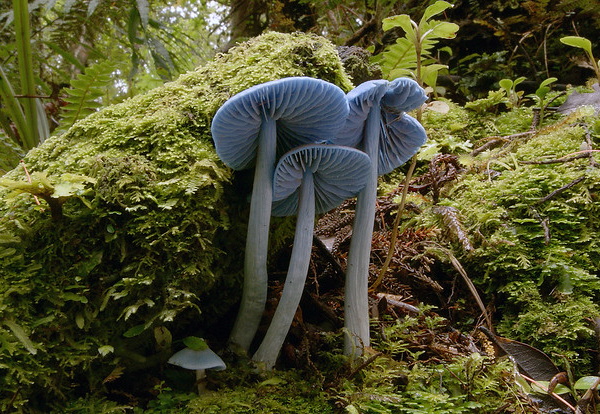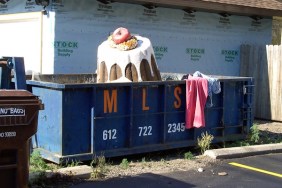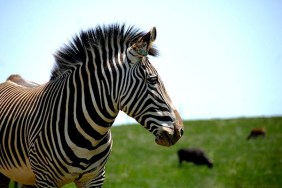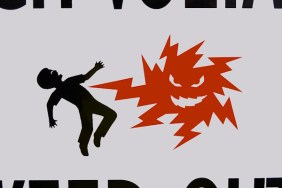Bioluminescent Fungi
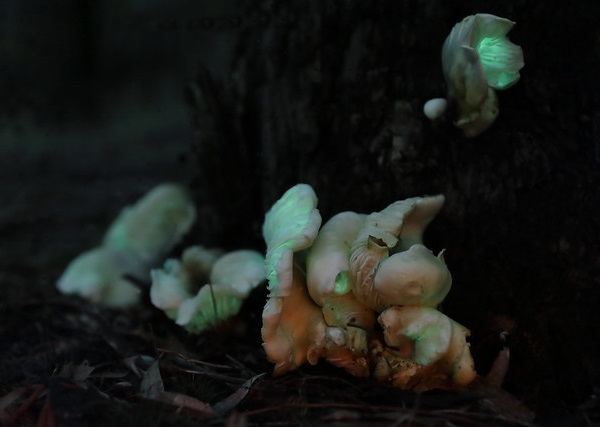
Mycena Chlorophos is one of seven recently documented species of bioluminescent fungi – there are now 71 such green-glowing mushroom species known. True Mycena Chlorophos were first formally identified in the 19th century from specimens discovered in the Bonin Islands off Japan’s Pacific ocean coast.
Other bioluminescent fungi have been found in Malaysia, Indonesia, Brazil, Mexico and Puerto Rico, and all glow softly with the same yellowish-green hue. The bioluminescence is thought to result from chemicals acting within the fungi in a method similar to that employed by fireflies to display their characteristic evening glow. (image via Ed Dunens)
Dog Stinkhorn
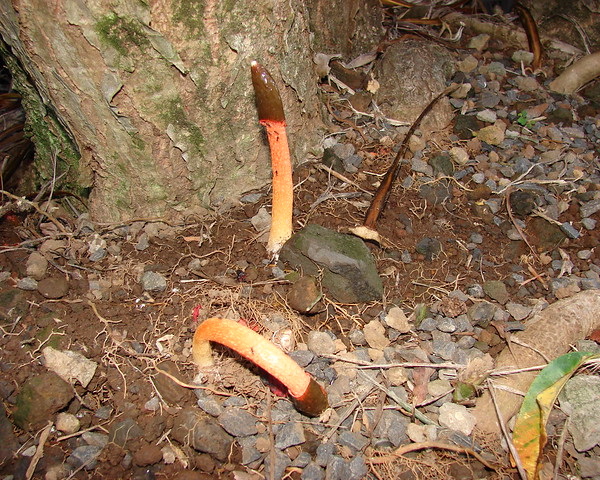
The Dog Stinkhorn’s latin name is Mutinus caninus; the former from the Roman phallic deity Mutinus Mutunus and the latter meaning “dog-like”. Nice. This striking stalked fungus carries a dark cap of sticky spores which attracts insects and is said to exude the aroma of cat excrement. That’s odd, why not dog excrement?
Off-putting name and appearance aside, Dog Stinkhorns are “possibly edible” and have been served (to the unknowing, perhaps) in exotic locales such as West Virginia. Lord knows what other vile vittles Granny’s likely to exhume from the back 40. (image via Forest and Kim Starr)
Coral Fungus
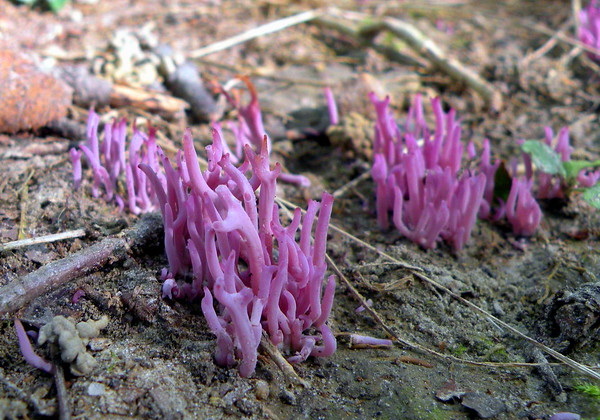
Coral Fungi of the genus Clavaria look like they’d be more at home on some tropical reef, seen through the bottom of a glass-bottomed boat. Scientists have determined there are over 1,200 species of Clavarioid fungi spread across a range of different genera, families and orders.
Coral fungi can exhibit a wide variety of hues ranging from pure white through brilliant orange and rich, organic purple. These mushrooms are not considered to be edible – just imagine young Mikey’s reaction if you were to dump a bunch of purple mushrooms on the side of his plate. That’s one way to get him to eat his broccoli! (image via Doug McGrady)
Red Cage Fungus
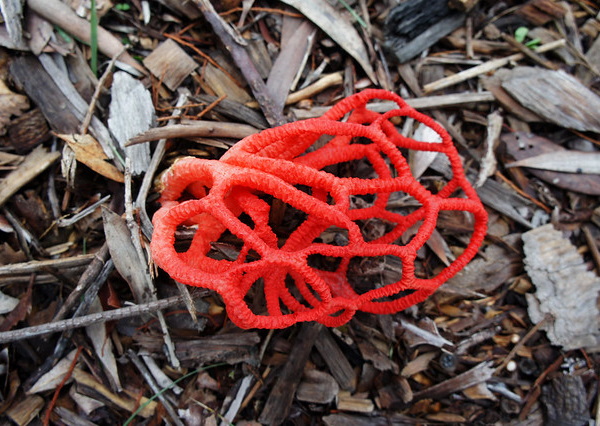
Described by one researcher as looking “like an alien out of a science fiction film”, Red Cage Fungus (Clathrus ruber) bursts forth from a whitish “egg” much the way that bizarre, all-consuming, meteor-borne creature did in the 1958 horror flick The Blob… except it doesn’t eat people, of course… OK, probably not. One apocryphal tale involving Red Cage Fungus, however, notes that Ciro Pollini, Italian author of Elementi di Botanica, once reported finding a specimen inside a tomb in a deserted church… growing on a human skull.
If its all-round weird appearance doesn’t put off the intrepid mushroom-hunter the aroma surely will. Yes indeed, Red Cage Fungus is a relative of the more common, more upright Stinkhorns and as such, it stinks: like a devilish combination of rotting meat and fresh excrement. Don’t even ask if it’s edible. (image via Karen Eliot)
Sky Blue Mushroom
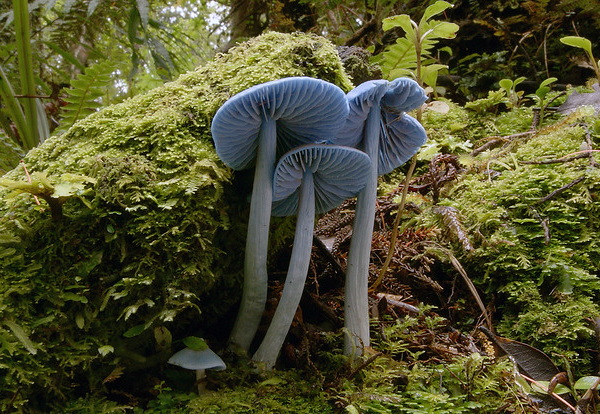
The Sky Blue mushroom (Entoloma hochstetteri) is a woodland-dwelling fungus found in western parts of New Zealand’s North and South Islands as well as occasionally in India. These very delicate looking, very blue mushrooms “may” be poisonous. Maybe someone should find out for sure before some hipster chef takes to garnishing dinner plates with them.
Sky Blue mushrooms have been featured on the backs of New Zealand’s $50 banknotes since 1990, where they share space with the native Blue Wattled Crow. It’s not certain that the mushrooms and the crows are found together in the same habitat – if so, do the crows eat the mushrooms and if so, do they survive the experience? (image via Bernard Spragg)
Fungi are really “fun guys” if oddity, complexity, variety and serendipity is what you’re into… and we haven’t even gotten into the fascinating lives and lifestyles of the many types of Cordyceps fungus – you know, the ones that take over insects’ brains and eventually grow out of their heads? Lovely… and good for you too, unless you’re a bug!
Are you a fan of toads but not their stools? Check out Warts & All: The World’s 7 Most Amazing Toads!

